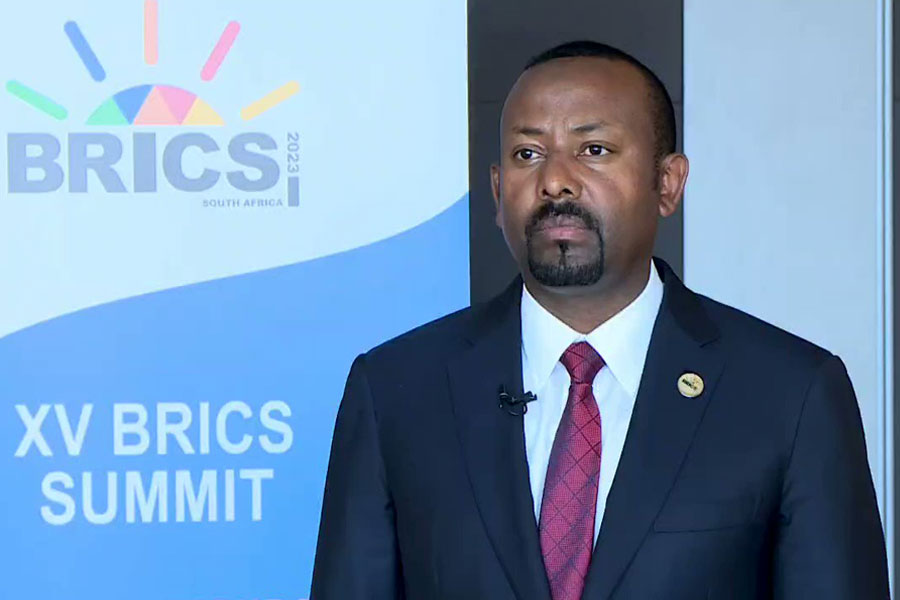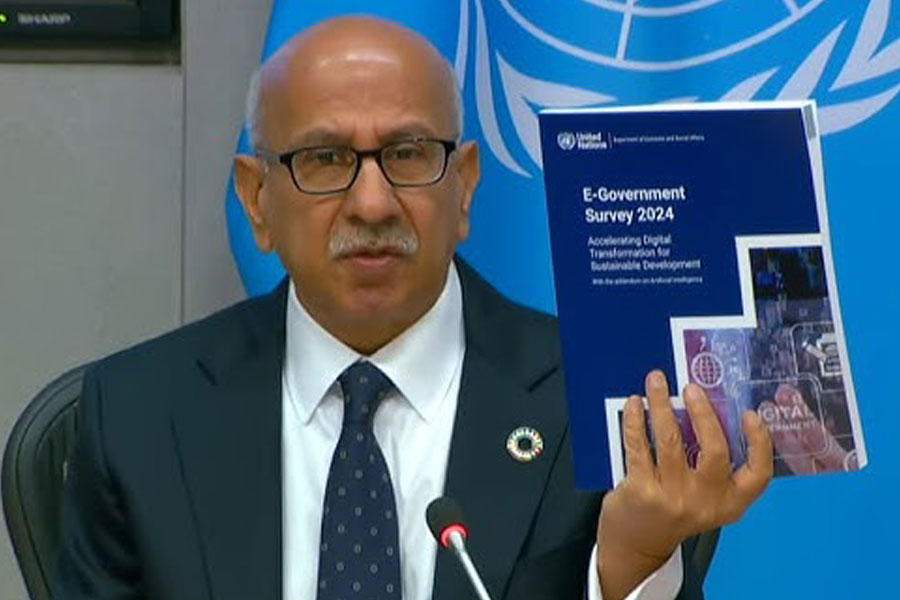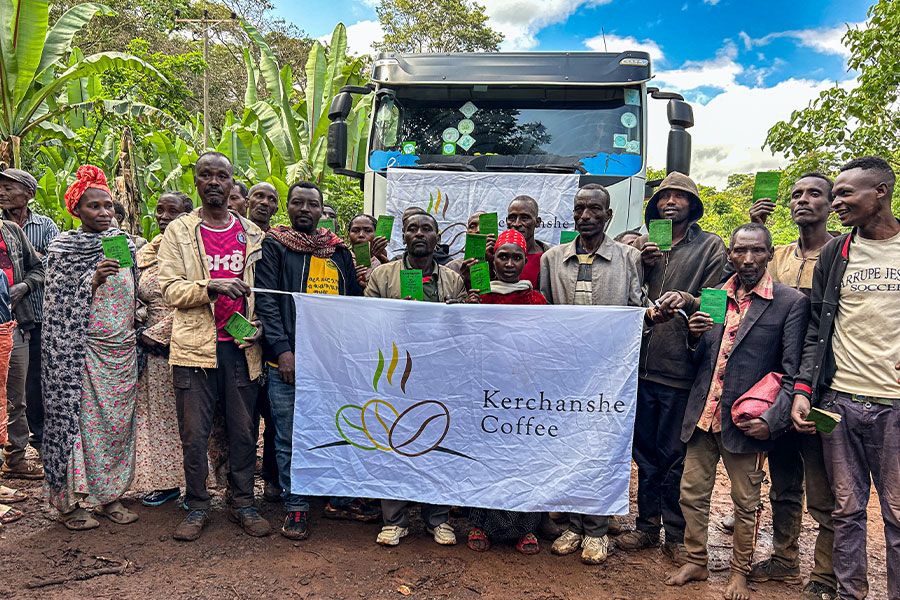
Radar | Oct 14,2023
Jul 30 , 2022
By Austine Sequeira , Andrea Sequeira
As the world recovers from COVID-19, the pattern of economic growth appears to inject more pain into the global population, pushing more and more people into poverty. The World Bank estimated that the pandemic would push an additional 88 million to 115 million people into extreme poverty in 2020 and as many as 150 million in 2021.
Post-2021, the world’s leading economies are struggling with rampant inflation as it takes a toll on growth prospects the world over. Inflation rates have doubled in 37 of the 44 advanced countries, with Turkey leading the pack, according to a recent Pew Research Centre report. Economies such as the United States and India are edging towards double-digit inflation. China and Japan are the only exceptions. One of Africa’s fastest-growing economies, Ethiopia faces an annual inflation rate in the 30pc-40pc range, taking it closer to hyperinflation.
Inflation is a concern to a wide cross-section of the public. While the rich can bear the rise in prices with an increase in income due to a rise in savings, for the poor and middle class, it is a double whammy - dwindling their disposable income and increasing their interest payments. The world poverty count is expected to surge due to rampant inflation. It is crucial to understand where it is coming from and why.
The headache started with the pandemic and economic lockdowns, which disturbed global supply chains. Effects of the Trump administration’s restrictive trade policies and Brexit, India’s inclusive growth model and resultant protective policies, the West’s sanctions on Russia and the continuing pandemic-like situation in China have all contributed to supply chain disruptions. The flow of goods and services from a place of manufacture to consumers stands disturbed, leading to scarcity and inflation. Unfortunately, economists worldwide did not anticipate that such disruptions would lead to sustained inflation.
For Ethiopia, inflation is not new. The economy has had some of the most impressive GDP growth rates, but high annual inflation rates have complicated development. Historically, supply has never matched the local demand for a population of 118 million, growing at over 2.5pc annually. Restrictive trade policies and aversion to opening the financial sector are offering minimum opportunities to a growing population. Government policies are not seen as adequate to attract foreign investment.
The net effect of these policies and the continuing effect of global value chains is a toxic combination for Ethiopia's economy. Globalisation has so far created immense wealth. It is of paramount importance that policymakers allow this wealth to reach their societies through global value chains. Ethiopia's challenge is opening up, even when the global economy looks choppy, and delivering inclusive prosperity.
Inclusive growth is fairly distributed across society and creates opportunities for all. World Bank research suggests that key inclusive measures are one where the income of the poorest 40pc of the population grows faster than the rest. In a country where capital formation is low and economic inequalities are high, inclusive growth policies are central to economic development and such policies have to be created on three interrelated fronts: economic, social, and political.
The important analysis is whether national development policies have produced opportunities that can enable the local economy to reap the benefits of globalisation and global value chains and why the scarcity of basic commodities and capital continues. Ethiopia's labour market is far from being integrated with the rest of the world, hence service sector opportunities are not as available as they are in the Philippines, India and, lately, Indonesia and Bangladesh.
Another side of the inflation coin is that rising interest rates make debt payment difficult, leading to debt defaults. A host of developing countries, from Laos to Argentina, are at risk. Some, like Sri Lanka, have already seen their economies collapse. Fortunately, Ethiopia has thus far managed its public debt well, taming it to about half of GDP. External debt is about a third of the total.
However, for capital-thirsty Ethiopia, public debt is the best option to increase development and support additional borrowing. If it can improve foreign currency reserves, Ethiopia can stretch its total public debt to 65 percent of GDP from the current standing by raising foreign funds and deploying them in basic industries and infrastructure building, thus going closer to global value chains.
Today's economic growth of nations like China and India depends on global supply chain linkages that create opportunities for the burgeoning population. There is no reason why these experiences cannot be replicated in Ethiopia. Opening borders, attracting investment, and encouraging the private sector into the world is an overdue task. Such policies and programs will gradually increase domestic productivity and competitiveness. The government needs to have a clear vision and mandate to improve trade policy, regulation of business services, investment, business taxation and industrial development in conformity with international standards.
PUBLISHED ON
Jul 30,2022 [ VOL
23 , NO
1161]

Radar | Oct 14,2023

Radar | Sep 02,2023

Commentaries | Aug 08,2020

Radar | Aug 26,2023

Viewpoints | Apr 26,2025

Editorial | May 03,2025

Editorial | Sep 21, 2024

Fortune News | Sep 28,2024

Fineline | Jun 22,2019

Advertorials | May 30,2025

Photo Gallery | 176227 Views | May 06,2019

Photo Gallery | 166441 Views | Apr 26,2019

Photo Gallery | 156912 Views | Oct 06,2021

My Opinion | 136888 Views | Aug 14,2021

Dec 22 , 2024 . By TIZITA SHEWAFERAW
Charged with transforming colossal state-owned enterprises into modern and competitiv...

Aug 18 , 2024 . By AKSAH ITALO
Although predictable Yonas Zerihun's job in the ride-hailing service is not immune to...

Jul 28 , 2024 . By TIZITA SHEWAFERAW
Unhabitual, perhaps too many, Samuel Gebreyohannes, 38, used to occasionally enjoy a couple of beers at breakfast. However, he recently swit...

Jul 13 , 2024 . By AKSAH ITALO
Investors who rely on tractors, trucks, and field vehicles for commuting, transporting commodities, and f...

Oct 18 , 2025
The political establishment, notably the ruling party and its top brass, has become p...

Oct 11 , 2025
Ladislas Farago, a roving Associated Press (AP) correspondent, arrived in Ethiopia in...

Oct 4 , 2025
Eyob Tekalegn (PhD) had been in the Governor's chair for only weeks when, on Septembe...

Sep 27 , 2025
Four years into an experiment with “shock therapy” in education, the national moo...

Oct 18 , 2025 . By NAHOM AYELE
In a sweeping reform that upends nearly a decade of uniform health insurance contribu...

A bill that could transform the nutritional state sits in a limbo, even as the countr...

Oct 18 , 2025 . By SURAFEL MULUGETA
A long-planned directive to curb carbon emissions from fossil-fuel-powered vehicles h...

Oct 18 , 2025 . By BEZAWIT HULUAGER
Transaction advisors working with companies that hold over a quarter of a billion Bir...